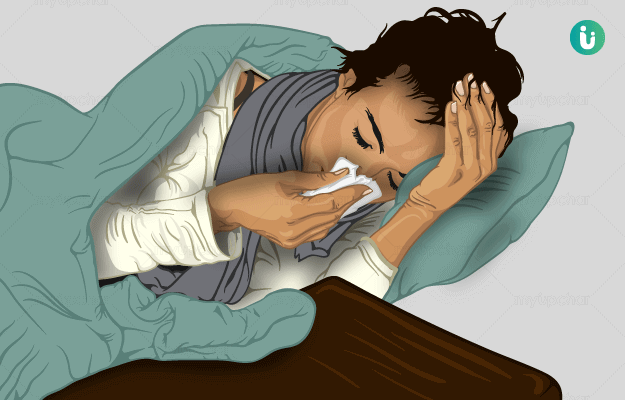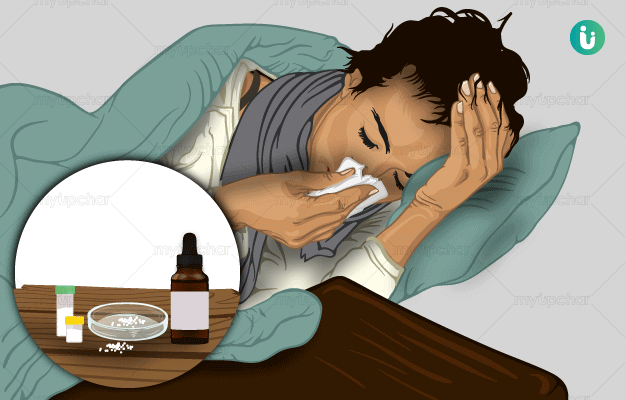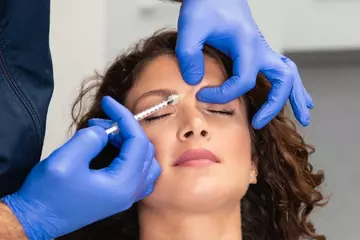Summary
Runny nose is a common and irritating condition. The medical term often used for a runny nose is "Rhinorrhea". However, accurately speaking, Rhinorrhea refers to the thin and clear discharge from the nose, and not the condition itself.
This condition arises due to excessive mucus formation which accumulates in the sinus (eye sockets, cheekbones, and forehead) or the air passage. Sinus region is a cave-like structure present behind the bones of the face and is connected to the nasal passage where mucus is gets accumulated. Mucus is formed in the body because of the invasion and presence of a colony of viruses of common cold or flu. The main symptom of a runny nose is the production of white liquid mucus usually (transparent or translucent in nature) runs down the nasal passage along with some sneezing and redness in the nose area. This condition is cured on its own and mostly does not require medical intervention.

 Doctors for Runny Nose
Doctors for Runny Nose  OTC Medicines for Runny Nose
OTC Medicines for Runny Nose
 Runny Nose articles
Runny Nose articles

 Homeopathic Treatment of Runny Nose
Homeopathic Treatment of Runny Nose




































 Dr. Rachita Narsaria
Dr. Rachita Narsaria











